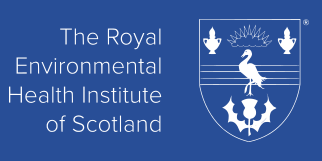Understand the main requirements of food safety legislation.

All objectives to be prefixed by the words; The expected outcome is that the course participant is able to:
General Introduction
Understand the benefits of high standards of hygiene within food premises
Understand the main requirements of food safety legislation.
Explain the terms: food hygiene, food poisoning, food hazards, food spoilage and food contamination.
Bacteria
Explain what bacteria are, their shape and size and where they may be found.
Understand that not all bacteria are harmful.
Explain how bacteria multiply and how time and temperature affect multiplication.
Causes Of Food Poisoning
Explain how food poisoning may be caused.
Describe the main sources of food poisoning and physical contaminants, including allergens.
Describe the symptoms of food poisoning.
Describe the common kinds of physical, chemical and allergenic contamination.
Preventing Food Poisoning
Describe simple measures to control hazards and prevent food poisoning by:
Protecting food from the risk of contamination
Preventing bacteria from multiplying
Destroying bacteria in food
Personal Hygiene
Explain how high standards of personal hygiene for food handlers can be achieved.
Explain when food handlers should wash their hands and describe acceptable methods of hand washing. Explain the need for detectable waterproof dressings to cover cuts and sores.
Explain the need for clean protective clothing.
Explain that you should not smoke, eat or drink in a food room and never cough or sneeze over food.
Explain that problems can occur with the wearing of jewellery and nail varnish/gel.
Explain that a supervisor must be told, before an employee commences work, of any skin, nose, throat, stomach or bowel trouble or infected wound. Explain that this is a legal requirement
Cleaning And Disinfection
The legal and moral reasons for cleaning and disinfection.
The meaning of the following terms:
Contamination and cross-contamination
Cleaning
Disinfection
Detergent
Disinfectant
Bactericide
Bactericidal detergent/sanitiser
Sterilising
Contact time
Dilution rates
Clean as you go
Safe Handling And Storage
Explain the need to avoid unnecessary handling of food.
Describe safe systems for the preparation, storage and handling of food by:
Avoiding unnecessary handling of food
Not preparing food too far in advance of serving
Keeping perishable food either refrigerated or piping hot
Keeping raw and cooked food strictly separate
Properly reheating food f. Cleaning as you go
Effective cleaning and disinfection
Safe disposal of refuse and waste food
Awareness of the signs of pests found in food premises
About REHIS
The Royal Environmental Health Institute of Scotland, often referred to as REHIS, was established in 1983 following the merger of the Royal Sanitary Association of Scotland (founded 1875) and the Scottish Institute of Environmental Health (founded 1973). The Institute was incorporated by Royal Charter in 2001.
The Institute is a registered Scottish charity No. SC009406.
The Institute awards the qualification which allows a person to practice as an Environmental Health Officer (EHO) in Scotland. Under the Royal Charter and Scheme of Continuing Professional Development it awards Chartered Environmental Health Officer status to eligible members.
The Institute is a long established awarding body in Scotland for a variety of REHIS qualifications, many of which have been independently credit rated on the Scottish Credit and Qualifications Framework (SCQF).
The Institute is a founder Member of the International Federation of Environmental Health.
The objects for which the Institute is established, which are contained in its Royal Charter, are, for the benefit of the community to promote the advancement of Environmental Health by
stimulating general interest in and disseminating knowledge concerning Environmental Health;
promoting education and training in matters relating to Environmental Health;
maintaining, by examination or otherwise, high standards of professional practice and conduct on the part of Environmental Health Officers in Scotland.
Membership is open to all persons with an interest in Environmental Health in its widest sense.
The affairs of the Institute are managed by a Council, elected annually by members.
© 2025 coursetakers.com All Rights Reserved. Terms and Conditions of use | Privacy Policy